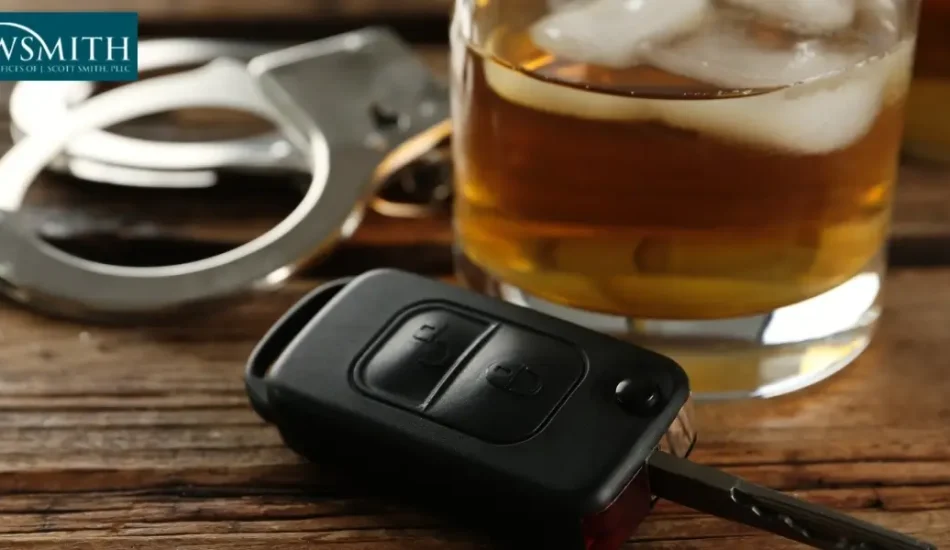How Long Does a DWI Stay on Your Record in North Carolina?

Being arrested for a DWI, sometimes called a DUI, in North Carolina can be a stressful experience. A conviction could lead to jail time, loss of driving privileges, and a criminal record that can prevent you from getting a job, an apartment, a loan, or other benefits. If you’ve been arrested, you may wonder, “How long does a DWI stay on your record in North Carolina?” The short answer is: forever.
North Carolina DWIs Explained
In North Carolina, driving while impaired (DWI) is a serious crime with the potential for severe consequences. DWI means operating a motor vehicle while impaired by substances like street drugs, alcohol, or certain medications. An impaired driver can be charged with a DWI, even if the vehicle is not moving, and non-motorized vehicles, such as bicycles, are also included.
Common Impairing Substances
Many people associate DWIs with alcohol, but other substances can also impact a driver’s ability to safely operate a vehicle. Some of the most common impairing substances include:
- Alcohol
- Illegal drugs, including LSD and methamphetamines
- Prescription medications, like opioids and other pain medicines, muscle relaxers, and sleeping pills
- Certain over-the-counter drugs that make users drowsy, like Benadryl and NyQuil
- Inhaled substances, like paint thinner, spray paint, and strong glue
A person doesn’t have to know they’re impaired or have any intent to drive impaired to be charged with DWI. That’s why it’s important to follow the instructions on your medicine carefully. That way, you can avoid driving a motor vehicle when impaired.
Penalties for a DWI
North Carolina has a structured sentencing system for DWIs, with six levels of penalties. Aggravated Level I is the most severe, and Level V is the least severe. For each level, there is a range of punishments, and the most serious charges cannot be reduced or suspended by a judge. Mitigating and aggravating factors also influence the penalty, including whether the driver has had a previous DWI charge in the last seven years.
It is important to note that Levels III, IV, and V may be eligible for suspended sentences in some cases. However, judges can’t suspend the minimum sentences for Aggravated Level I, Level I, and II charges because these involve:
- Repeat offenders
- Those with revoked driver’s licenses
- Those with other serious aggravating factors, like having children in the car at the time the driver is impaired
- Causing an accident where someone was seriously injured
In addition, the Division of Motor Vehicles (DMV) revokes the driver’s license of any driver who is convicted of a DWI. The driver may be eligible to have their license reinstated after a certain time, but it depends on the charge and whether they have completed a substance abuse assessment and treatment. Charges that result in driver’s license revocation include:
- Refusal to take a breath or blood test at the station after being arrested
- First DWI
- Second DWI within three years will suspend the license for four years
- Third DWI in ten years may suspend your license permanently
How Long a DWI Stays on Your Record in NC
Three years, seven years for DWI charges or ten years for repeat offenders.
Forever, a criminal record is permanent. In North Carolina, landlords and some other parties could see your DWI charges indefinitely when they perform a background check.
FAQs
What Is the Drunk Driving Limit in NC?
In North Carolina, the legal limit for the amount of alcohol in one’s blood, called blood alcohol concentration, is 0.08% for most drivers and 0.04% for commercial drivers. This is usually measured with a breath or blood test. It is also important to know that, while you can opt not to take a breath or blood test during a stop, doing so at the station after an arrest can lead to having your driver’s license suspended.
What Is the Difference Between a DUI and a DWI?
A DUI means Driving Under the Influence, and DWI is Driving While Impaired. In some states, DUI specifically means drunk driving, but North Carolina is not one of them. The state only uses the term Driving While Impaired in legal situations, as it refers to any kind of impairing substance. This means that, in North Carolina, the term “DUI” is outdated and not used in legal settings.
How Do I Get My DWI Dismissed in NC?
While it is possible to get a DWI dismissed in North Carolina, it is not common unless there is not enough evidence or there was a breach of the driver’s rights. A skilled DWI attorney can determine if you are eligible for such a program or if there are other grounds to have your DWI charges dismissed.
How Long Does It Take to Get a DWI Off Your Record in NC?
In most cases, you can’t get a DWI conviction removed from your record in North Carolina. However, if you were not charged, the charges were dismissed, or you were found not guilty, you could have an arrest expunged from your record by filing a petition with the court where the arrest happened. A DWI lawyer can determine if you are eligible and what steps you need to take to have your arrest expunged.
Get Help With DWI Charges
LAWSMITH, The Law Offices of J. Scott Smith, PLLC, has extensive experience in defending against DWI charges. In fact, our founding attorney has taught other attorneys throughout North Carolina about defending against DWIs. If you are facing a DWI charge, contact our office right away to schedule an initial consultation and discuss your case.

